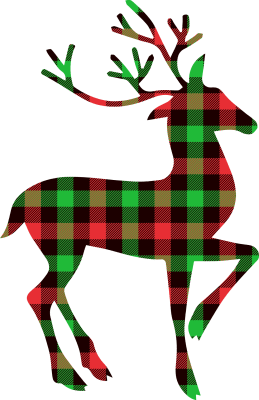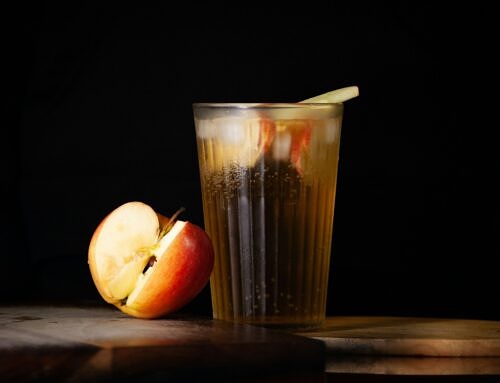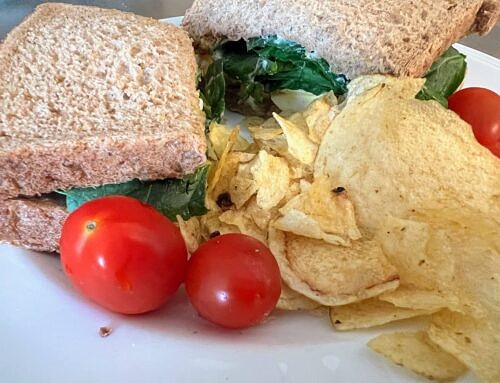
The Problem With Sparking Reindeer Food
Glitter is made of tiny pieces of plastic – microplastic – that can be toxic to birds and other wildlife, as well as pollute watercourses if they blow into or are washed into them. It can accumulate in the bodies of animals instead of passing through their digestive systems. If it is an animal that humans later consume, such as fish, humans then absorb it too. The bits of plastic themselves are only part of the problem. When they do begin to breakdown they can release chemicals that disrupt human and animal hormones.
There is also concern that any sharp edges (especially if adding sequins to the mix) could damage animals’ digestive tract. ‘Eco-friendly’ glitter may still be coated with aluminium to make it shiny.
Even washing glitter down a sink may not be a safe way to dispose of it – it is thought that glitter can pass through the screens at water treatment plants and settle into the sludge which may then be used on land as a fertiliser. Worse, it may be pumped straight out into our watercourses (huge amounts of untreated sewage and waste water was pumped into watercourses during 2021).
Glitter may be found in craft products, cosmetics and food.
Edible Glitter
Always check the ingredients to make sure edible glitter is what you think it is. If it is edible, the glitter is likely to contain sugar and e-numbers. Neither will do the wildlife any good. This is the same for other decorations such as edible stars etc. you might consider adding to reindeer food.
Glitter Phobia
Did you know some people have a phobia of glitter? The name for this fear is sparkalaphobia and may apply to anything shimmery, not just glitter.
Oats
Oats are a common ingredient in the reindeer food which are a great food for both reindeer and humans. They provide us with energy (they are a carbohydrate) but also fibre and a wide range of vitamins and minerals. The fibre in oats includes beta-glucans. These are a really useful kind of fibre – beta-glucans help to reduce LDL cholesterol to help us get a better cholesterol balance, manage blood sugar and insulin, increase the feeling of fullness and support the good gut bacteria. As they are high in water soluble fibre, oats may help to relieve constipation.
The vitamins and minerals present in oats include manganese, phosphorus, magnesium, copper, iron, zinc and vitamin B1 (thiamine). Oats also contain greater amounts of protein and fat than other grains. They are even a good source of antioxidants, in particular the anti-inflammatory avenathramides. This antioxidant also has anti-itching properties, which may explain why oat baths can help relieve the itchiness of chicken pox.
Oats are naturally gluten-free, however there are gluten-free oats available in the shops. The difficulty is that during harvest or processing the oats may ordinarily come into contact with gluten-containing grains. This can cause contamination of the oats, which could have serious consequences for anyone with a condition such as coeliacs disease.
For a low-cost, healthful alternative to ultra-processed breakfast cereals, why not try porridge or overnight oats? You can add different fruits, nuts and seeds to give your breakfast variety each day. I like a few raisins with mixed berries, milled seeds, chia seeds and a tiny bit of spirulina on my porridge.
Recipe: Glitter-Free, High-Energy Reindeer Food
So, whether you want to look after the environment or a friend with a phobia, here is a recipe for a glitter-free, high-energy reindeer food (source: RSPCA).
- Handful of wild bird seeds
- A few rolled oats
- Dried fruit, such as cranberries*
- Dried insects, such as mealworms and waxworms (yuck!)
- Grated cheese
- A small pinch of chilli powder.
Mix all the ingredients together and sprinkle outdoors before bed.
(The chilli powder will help to deter squirrels and rodents from eating the food, as well as giving the food a bit more colour.)
*Note: please be aware of where you are putting this food and the animals that may have access to it. Dried fruit such as grapes, raisins, sultanas and currants can be toxic to some animals such as dogs and cats.
If you follow the RSPCA link above, there is also a reindeer cookie recipe which birds may enjoy (if the reindeer leave any leftovers that is!).



